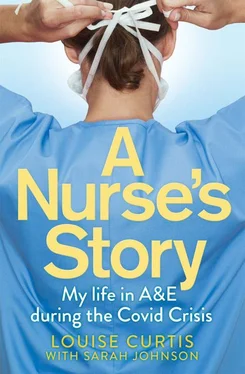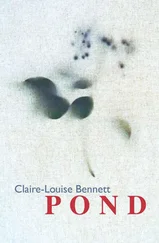It’s frustrating, it’s rude, it’s hurtful and it’s demoralizing. I’ve been doing this job for years. Some nurses have been in A&E for decades and have so much experience and exposure that they can tell what’s wrong with a patient just by looking at them.
Since I started my career, the hierarchy has flattened out a lot and there’s more of an appreciation that nurses are up-skilling and becoming autonomous decision-makers. One positive thing about the pandemic was that it had raised the profile of nursing. The general public definitely had more of an appreciation of us, but even so many still thought we were there to do bed baths and wipe bottoms. Nurses, and female healthcare professionals in general, have a tough time smashing patriarchal views and outdated stereotypes that are still present.
I went to find a doctor, explained my patient’s situation to him and asked if he would request a scan for me.
‘I don’t think that’s necessary,’ he told me.
‘I think it is,’ I replied. ‘There’s a definite tender mass in his abdomen that I think needs investigating today.’
‘No, we’ve got enough to worry about. Send them home for the GP to arrange a scan.’
‘I really think we should do a scan.’
Eventually he agreed. I was so relieved, especially when the scan revealed there was something there. The radiologist couldn’t determine whether it was a cancer of some kind or an appendicitis that had engulfed the bowel. Either way, it was serious. This was probably the source of my patient’s temperature, but he could be doubly unfortunate and also have the virus.
I went back and told him: ‘Your scan has shown that there is a mass in your tummy. We’re not totally sure what it is, so you need to come into hospital so the surgeons can take you to theatre and have a closer look.’
He looked at me blankly. I was not sure he had taken everything in. Was he confused? I didn’t want to cause more distress, so if he hadn’t grasped the full extent of what I had said, there was no point in banging on about it.
Unlike back in April when the hospital had three isolation units going but ample staff to run them, the amount of people on shift had decreased as the numbers of people with coronavirus had fallen. We were now starting off with one isolation unit open in the morning. By lunch, it might have filled up and another one would have to open in the afternoon. On those days, I was rushed off my feet. Eight people would come in all at once and there’d be a flurry of activity with me making decisions and plans for existing patients while trying to care for the new ones. What was worse was that some people were turning up really sick, much more so than a month or so before. I didn’t know why. Were they delaying asking for help? Did they think we were still in the thick of it and didn’t want to bother us?
In complete contrast, when I was away from work, it seemed like people had forgotten about the pandemic we were embroiled in and that was absolutely not over. Numbers had decreased but there were still hundreds of people dying a day. Only a few shifts before, I had a call from someone working in the intensive care unit asking if a patient’s wedding ring had been left in A&E. By the time we found it half an hour later, they had died. I knew lockdown was boring and challenging but I was tired of hearing about and seeing deaths that could have been avoided.
What really stood out to me was seeing the queue for McDonald’s. I couldn’t get into the retail outlet to go to the supermarket because the roads were blocked. I didn’t even understand what was so great about eating the food produced there. I’m well aware how controversial that opinion is, as when I told some colleagues I’d never had a burger from McDonald’s they looked at me with such disdain.
The people coming in to the isolation unit now and testing positive for Covid-19 must have caught the virus during lockdown. Their shock at how this could have happened never failed to surprise me.
‘You’ve got the virus,’ I’d tell them.
‘Oh, I don’t know how that’s happened,’ they’d say. ‘I’ve been locked down for the past couple of weeks.’
‘Have you left the house?’
‘Yes.’
‘Have you had contact with other people?’
‘Yes, my relative comes round every day to see if I’m OK and do any odd jobs around the house.’
‘That’s probably why then. You’ve got this from your socializing or from your relative.’
I was flabbergasted at some people’s ignorance around how viruses spread. I sometimes wished it was visible, like the emoji of a neon green splodge, because then the public’s approach to it would be different. Perhaps people would think twice about touching a door that various people had access to and then not washing their hands afterwards. It was really difficult not to get frustrated, especially when I knew people were not adhering to lockdown as they should have been.
One colleague told me that they had got home after a day at work only to find their partner and children not there. They’d phoned the partner who said they were round at a neighbour’s house because it was a sunny day. My colleague went round to find all the children playing with each other and having a party. It was soul-destroying for that nurse who had just spent twelve hours looking after Covid patients to come home to their own family disobeying the rules. And I heard variations on this story from other staff. People’s interpretations of the rules were so different. In some cases, it seemed that unless individuals were personally affected by a relative who had died, they thought they were invincible and had little regard for the lives of others.
The next day, I was working in resus when I was called to see a patient in supraventricular tachycardia – a very fast heart rhythm, which if left untreated can be fatal. The symptoms are palpitations or feeling short of breath. The only way to treat it is with a drug that switches the patient’s heart back into its normal rhythm. This isn’t any old drug, however, and administering it is terrifying both for the patient and the healthcare professional.
‘You’ve got an irregular heartbeat,’ I told my patient. ‘To fix it, I’m going to give you this drug. It works rapidly, usually within a few seconds. It will make you feel as though your heart is stopping. It will give you a sense of impending doom and make you feel as though you might die. It will make you feel like you’re falling but we’re here and you need this to make you feel better.’
He looked at me aghast, but realized that I needed to get a move on. I injected the dose very quickly into a large cannula that we’d inserted as close to the heart as possible and flushed it down with saline to get it moving. My consultant was with me, so if something went wrong we were all in safe hands.
Within a few seconds, the look of nervousness on my patient’s face turned to panic, and tears appeared in his eyes before he started groaning and losing consciousness. I held his hand saying, ‘It’s going to be OK, we’ve got you.’ I kept looking at the defibrillator, where I saw his heart rate plummet from 180 beats per minute to zero. The line across the screen was slightly wavy (the flat line you see in movies is not real) instead of jagged; my patient’s heart was stopping.
Normally at this point, I would have started doing compressions but in this case I had to stand, watch and wait for what felt like hours, but in reality was a couple of seconds.
‘It’s working,’ I said to my patient.
If he stayed like this for a couple of seconds longer, he would be in cardiac arrest and I’d have to start trying to revive him. I waited with bated breath until I saw his heartbeat resume on the screen. I think in that moment I was more relieved than my patient. When he came round, he said, ‘Oh I feel great. Thank you! Can I go home now?’
Читать дальше












